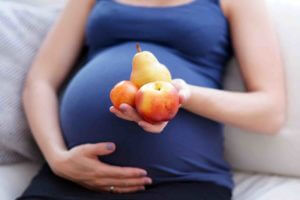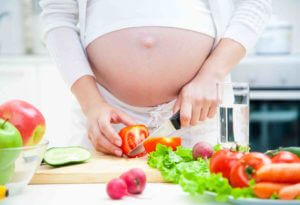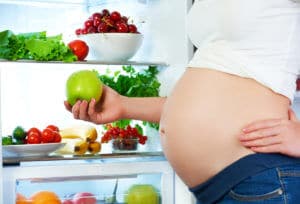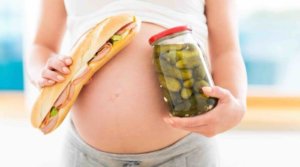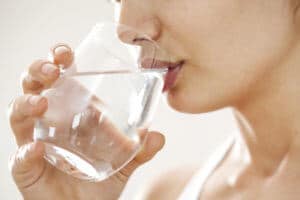You probably already know that alcohol is a dangerous cell poison and can cause many health problems for your baby. The first studies on the possible consequences of alcohol consumption during pregnancy were published several decades ago. Nevertheless, many expectant moms drink alcohol because they underestimate or do not know the consequences. We have summarized the most important facts about drinking alcohol during pregnancy and while breastfeeding to help you better understand the issue.
According to the KiGGS study by the Robert Koch Institute, occasional alcohol consumption during pregnancy occurs at a rate of 14%, which is similar to smoking. Not all mothers are aware that this behavior can lead to massive damage to the infant. Under the term Fetal Alcohol Spectrum Disorders (FASD- Fetal Alcohol Spectrum Disorders) almost all damages caused by alcohol consumption are summarized. Between 4-6 children out of 1000 births in Germany are born with fetal alcohol spectrum disorders. This makes it one of the most common congenital mental disabilities, ahead of Down syndrome.
Table of contents
Fetal Alcohol Spectrum Disorder (FASD) – An Overview
Origins
Alcohol consumption causes alcohol to enter not only the bloodstream of the expectant mother but also directly into the baby’s tiny body via the placenta. The alcohol content remains almost the same and decreases only insignificantly. In an embryo and fetus, the organs are not yet fully developed, which is why it takes much longer for the alcohol to be broken down. If large quantities of alcohol are drunk, as is the case with so-called binge drinking, for example, unborn babies are particularly severely damaged
The developmental stage of embryos is particularly crucial here. In the first 11 weeks of pregnancy, the influence of alcohol is particularly damaging and malformations already occur at this early stage. But even after the 11th week, drinking alcohol leads to neuronal disorders, as the baby’s brain development is interfered with
What is FASD?
The damage of an FASD can be divided into three areas: Growth disorders, signs of malformation, and central nervous system disorders. The disorder can come in different shapes and forms. Fetal alcohol syndrome (FAS) refers to the full expression of symptoms. In this case, abnormalities are present in all three possible areas, which, according to expert estimates, is the case in about 10% of children with the disease. If alcohol consumption was detected during pregnancy, but abnormalities are not present in all three areas, this is referred to as partial fetal alcohol syndrome (pFAS)
The symptoms of FAS are not always recognizable, which is why there is probably a high number of unreported cases. The reason lies in the different manifestations of the disease. The brain of the embryo reacts particularly sensitively, which is why alcohol consumption especially often leads to neurological changes. These are, unlike physical characteristics, not recognizable at first glance.
What Symptoms Can Occur With FASD?
Suffering children usually have the following symptoms:
- They are too small
- They have a small head
- Various abnormalities in the face (narrow upper lip, high palate)
- Behavioral abnormalities such as speech, hearing and eating disorders, because their central nervous system is damaged
- Damage to the organs (heart defects and kidney damage are very common)
What Are The Long-term Consequences For The Children?
Even in infancy, babies are usually restless and easily irritable. The symptoms are often confused with ADHD. The reason for this is the absence of physical abnormalities in the children and the mother’s failure to say whether or not she has consumed alcohol
In everyday life, the children find it difficult to plan or organize actions. Lack of concentration, conspicuous behavior, and developmental disorders are only three of the possible consequences.
The clinical picture does not simply end in adulthood. The damage is irreversible, cannot be cured and people with FASD are dependent on help throughout their lives.
How Can FASD Be Prevented?
As the name suggests, Fetal Alcohol Spectrum Disorders only occur when alcohol is consumed during pregnancy. If this cellular toxin is abstained from during the period of pregnancy, there can be no damage caused by alcohol. Especially women who wish to become pregnant or are already in the concrete planning stage of pregnancy should refrain from drinking alcohol. In the mostly unnoticed first weeks of pregnancy, alcohol causes severe damage that lasts a lifetime
What Is The Effect Of Alcohol Consumption During Breastfeeding?
During breastfeeding, many mothers wonder whether a glass of wine, champagne or beer is harmful to their baby. The effects here, unlike with alcohol consumption during pregnancy, have not yet been extensively studied. For ethical reasons, no research can be conducted and it is not possible to say exactly how many parts per thousand babies absorb through breast milk. What is important is that the alcohol passes from the mother’s blood into the breast milk and is definitely passed on to the baby during breastfeeding.
According to the Federal Institute for Risk Assessment (BfR), a summary table states the following: If a mother drinks a glass of wine (250 ml) while breastfeeding, she subsequently has about 0.59 per mille in her blood; for her baby from 3 months of age, it is 0.0034 per mille after breastfeeding. In comparison, a fetus has 0.35 per mille in the blood after the pregnant woman has drunk a glass of wine
The BfR scientists assume that breastfed babies do not suffer any severe damage as in the case of drinking during pregnancy, but even a newborn baby can break down alcohol only very slowly. Therefore, it is highly advisable to avoid alcohol during the entire period of breastfeeding. If a glass of alcohol is drunk after all, it is advisable not to do so until a few months after the birth. This is because, especially in the first few weeks, it is difficult to estimate when the baby will need its next meal
Even if you can estimate the time to the next meal relatively well, it is advantageous to pump the breast milk before drinking alcohol. The expressed milk can be safely stored in the refrigerator until the next meal
After a glass of alcohol, allow at least one to two hours for breastfeeding to resume so that the alcohol in the blood and milk can break down. If too much milk accumulates during this time, a breast pump can also be used
Conclusion
There is no lower limit for alcohol consumption. The principle here is that every sip of alcohol is too much. Both during and after pregnancy, the baby’s development is affected by alcohol. Fetal alcohol spectrum disorders have a strong influence on the child’s later life and can only be prevented by abstaining 100% from alcohol. Not only during and after pregnancy is abstaining from alcohol more than advisable. Especially women in pregnancy planning and with current pregnancy desire should abstain from it, so that they do not unknowingly drink alcohol in the first weeks of pregnancy and thus harm their child.




